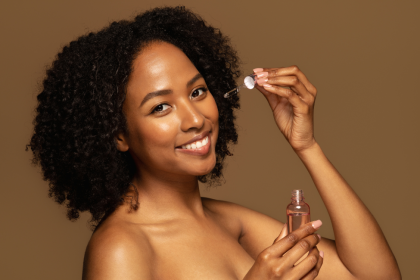The quest to delay aging has captivated humanity for centuries, driving countless searches for the fountain of youth. While we can’t stop time entirely, modern understanding of the aging process has revealed powerful strategies that can significantly slow down how our bodies and minds deteriorate over time. The key lies not in expensive miracle treatments, but in consistent, science-backed lifestyle choices that address aging at its cellular level.
Aging occurs through multiple interconnected processes, including cellular damage from free radicals, declining hormone production, reduced cellular repair mechanisms, and gradual deterioration of organ function. Understanding these mechanisms empowers you to take targeted action that can meaningfully impact how quickly you age and how vibrant you feel throughout your life.
The most encouraging news is that many aging factors remain within your control. While genetics play a role in determining your aging trajectory, lifestyle choices account for approximately 70-80% of how well you age. This means that the daily decisions you make about food, exercise, sleep, stress management, and skincare can dramatically influence your biological age compared to your chronological age.
Revolutionary skincare strategies that transform aging skin
Your skin serves as the most visible indicator of aging, making effective skincare crucial for maintaining a youthful appearance. The foundation of age-defying skincare lies in understanding how skin ages and implementing targeted strategies to combat these changes before they become irreversible.
Sun protection forms the cornerstone of any anti-aging skincare routine. Ultraviolet radiation from the sun causes up to 90% of visible aging signs, including wrinkles, age spots, and loss of skin elasticity. Daily application of broad-spectrum sunscreen with at least SPF 30 can prevent further sun damage and allow your skin’s natural repair processes to reverse some existing damage.
Retinoids represent one of the most powerful anti-aging ingredients available. These vitamin A derivatives stimulate cellular turnover, boost collagen production, and fade age spots while preventing new ones from forming. Start with a low concentration to allow your skin to adjust, gradually increasing strength as tolerance builds.
Antioxidants like vitamin C, vitamin E, and niacinamide protect skin from free radical damage while supporting collagen synthesis. These ingredients work best when applied in the morning under sunscreen, creating a protective barrier against environmental stressors that accelerate aging.
Hydration plays a crucial role in maintaining plump, youthful-looking skin. Hyaluronic acid can hold up to 1,000 times its weight in water, making it an exceptional ingredient for maintaining skin moisture and reducing the appearance of fine lines caused by dehydration.
Nutrition strategies that slow cellular aging
What you eat directly impacts how quickly your cells age, making nutrition one of the most powerful tools for delaying the aging process. The key lies in consuming foods that support cellular repair while avoiding those that accelerate damage and inflammation.
Antioxidant-rich foods form the foundation of an anti-aging diet. Berries, leafy greens, colorful vegetables, and nuts contain compounds that neutralize free radicals before they can damage cellular structures. These foods also provide essential vitamins and minerals that support the body’s natural repair mechanisms.
Omega-3 fatty acids found in fish, walnuts, and flaxseeds help maintain cellular membrane integrity and reduce inflammation throughout the body. These healthy fats support brain function, heart health, and skin elasticity while combating the chronic inflammation that accelerates aging.
Protein intake becomes increasingly important as we age, as muscle mass naturally declines over time. Consuming adequate high-quality protein helps maintain muscle mass, supports immune function, and provides the building blocks for cellular repair processes.
Limiting processed foods, refined sugars, and excessive alcohol consumption can significantly slow aging processes. These substances promote inflammation, damage cellular structures, and deplete the body’s antioxidant reserves, accelerating visible and internal aging.
Intermittent fasting has emerged as a powerful anti-aging strategy that triggers cellular cleanup processes called autophagy. This natural mechanism allows cells to remove damaged components and regenerate, potentially extending lifespan and improving healthspan.
Exercise protocols that reverse biological aging
Physical activity serves as one of the most potent anti-aging interventions available, with the power to reverse many age-related changes at the cellular level. The key lies in understanding which types of exercise provide the greatest anti-aging benefits and how to structure your routine for maximum impact.
Cardiovascular exercise improves heart health, enhances circulation, and promotes the growth of new blood vessels that deliver nutrients and oxygen to tissues throughout the body. Regular aerobic activity also stimulates the production of brain-derived neurotrophic factor, which supports cognitive function and may prevent age-related mental decline.
Strength training becomes increasingly important as we age, as muscle mass naturally decreases by 3-8% per decade after age 30. Resistance exercise not only maintains and builds muscle but also strengthens bones, improves balance, and enhances metabolic function.
High-intensity interval training (HIIT) has shown remarkable anti-aging benefits, including improved mitochondrial function, enhanced insulin sensitivity, and increased production of growth hormone. These short, intense workouts can be more effective than longer, moderate-intensity sessions for delaying aging processes.
Flexibility and balance exercises like yoga and tai chi help maintain joint mobility, prevent falls, and reduce stress levels. These practices also promote mind-body connection and can improve sleep quality, both of which contribute to healthy aging.
Sleep optimization for cellular regeneration
Quality sleep serves as the body’s primary time for repair and regeneration, making it essential for delaying aging processes. During sleep, your body produces growth hormone, consolidates memories, and clears metabolic waste from the brain.
Maintaining consistent sleep schedules helps regulate circadian rhythms, which control numerous biological processes including hormone production, metabolism, and cellular repair. Going to bed and waking up at the same time daily, even on weekends, optimizes these natural cycles.
Creating an optimal sleep environment involves controlling temperature, light, and noise levels. Cool, dark, quiet rooms promote deeper sleep and more effective overnight recovery processes.
Limiting screen time before bed prevents blue light exposure that can disrupt melatonin production. This hormone not only regulates sleep but also acts as a powerful antioxidant that protects against cellular damage.
Sleep duration matters significantly for aging processes. Most adults need 7-9 hours of quality sleep nightly to support optimal cellular repair and regeneration. Chronic sleep deprivation accelerates aging and increases the risk of age-related diseases.
Stress management techniques that preserve youth
Chronic stress accelerates aging through multiple mechanisms, including increased cortisol production, cellular damage, and accelerated telomere shortening. Learning to manage stress effectively can significantly slow aging processes and improve overall health and appearance.
Meditation and mindfulness practices have been shown to reduce stress hormones, lower inflammation, and potentially slow cellular aging. Even brief daily meditation sessions can produce measurable anti-aging benefits over time.
Deep breathing exercises activate the parasympathetic nervous system, promoting relaxation and reducing the physical effects of stress on the body. These techniques can be practiced anywhere and provide immediate stress relief.
Regular social connections and meaningful relationships contribute significantly to healthy aging. Social isolation and loneliness have been linked to accelerated aging and increased risk of age-related diseases.
Finding purpose and meaning in life appears to have protective effects against aging. People with strong sense of purpose tend to live longer and experience better health outcomes as they age.
Hormonal balance for youthful vitality
Hormones play crucial roles in maintaining youthful appearance and function, and their natural decline with age contributes significantly to aging processes. Understanding how to support healthy hormone levels can help delay many age-related changes.
Growth hormone production naturally decreases with age, contributing to muscle loss, increased fat storage, and reduced energy levels. Regular exercise, adequate sleep, and intermittent fasting can help maintain healthy growth hormone levels naturally.
Thyroid hormones regulate metabolism, energy levels, and body temperature. Supporting thyroid function through proper nutrition, stress management, and avoiding endocrine disruptors can help maintain metabolic health as you age.
Sex hormones including estrogen, testosterone, and progesterone decline with age, affecting everything from bone density to skin elasticity. While hormone replacement therapy is an option for some, lifestyle factors like exercise, stress management, and proper nutrition can help support healthy hormone levels naturally.
Insulin sensitivity tends to decrease with age, leading to increased fat storage and higher risk of age-related diseases. Maintaining stable blood sugar levels through proper diet and exercise helps preserve insulin sensitivity and delays metabolic aging.
Brain health strategies for cognitive longevity
Maintaining cognitive function and preventing age-related mental decline requires targeted strategies that support brain health throughout life. The brain’s remarkable plasticity means that positive changes can be made at any age.
Continuous learning and mental challenges help maintain cognitive function and may prevent age-related decline. Reading, puzzles, learning new skills, and engaging in complex mental activities stimulate neuroplasticity and build cognitive reserve.
Social engagement and meaningful relationships appear to protect against cognitive decline. Regular social interaction stimulates the brain and may reduce the risk of dementia and other age-related cognitive issues.
Physical exercise benefits brain health as much as physical health. Regular activity increases blood flow to the brain, promotes the growth of new neurons, and enhances cognitive function.
Proper nutrition supports brain health through antioxidants, omega-3 fatty acids, and other nutrients that protect against cognitive decline. Foods like berries, fatty fish, and leafy greens provide essential nutrients for brain health.
Environmental factors that accelerate or delay aging
Your environment significantly impacts how quickly you age, making it important to minimize exposure to aging accelerators while maximizing protective factors.
Air quality affects aging through oxidative stress and inflammation. Using air purifiers, spending time in nature, and avoiding pollution when possible can help protect against environmental aging.
Chemical exposure from personal care products, household cleaners, and food packaging can disrupt hormone function and accelerate aging. Choosing natural, non-toxic alternatives reduces this burden on your body.
Light exposure patterns affect circadian rhythms and aging processes. Getting bright light exposure in the morning and avoiding blue light at night helps maintain healthy sleep-wake cycles.
Temperature extremes can stress the body and accelerate aging. Maintaining comfortable environments while occasionally challenging your body with controlled temperature stress (like cold showers or saunas) may provide anti-aging benefits.
Lifestyle habits that compound anti-aging benefits
The most effective anti-aging strategies involve consistent daily habits that compound over time. Small, sustainable changes often produce more significant results than dramatic but unsustainable lifestyle overhauls.
Hydration plays a crucial role in cellular function and appearance. Drinking adequate water throughout the day supports every bodily function and helps maintain skin elasticity and overall vitality.
Regular health monitoring allows for early detection and intervention of age-related changes. Routine health screenings, biomarker testing, and preventive care can identify issues before they become serious problems.
Maintaining a positive mindset and optimistic outlook appears to have protective effects against aging. Research suggests that people with positive attitudes tend to live longer and experience better health outcomes.
Building and maintaining strong social connections provides emotional support and may protect against age-related decline. Investing in relationships and community involvement contributes to overall well-being and longevity.
Creating your personalized anti-aging protocol
Developing an effective anti-aging strategy requires understanding your individual needs, risk factors, and lifestyle constraints. The most successful approaches combine multiple strategies tailored to your specific situation.
Start with foundational habits like proper nutrition, regular exercise, adequate sleep, and stress management. These form the basis of any effective anti-aging protocol and provide the greatest return on investment.
Gradually add more targeted strategies based on your specific concerns and goals. Whether focusing on skin health, cognitive function, or physical performance, layering additional interventions can enhance results.
Consistency matters more than perfection. Sustainable habits practiced regularly produce better long-term results than perfect protocols that can’t be maintained over time.
Regular assessment and adjustment of your anti-aging strategy ensures continued effectiveness. As you age and your needs change, your approach should evolve accordingly.
The journey to delay aging isn’t about finding a single magic solution but rather about embracing a comprehensive lifestyle approach that addresses aging from multiple angles. By implementing these evidence-based strategies consistently, you can significantly slow aging processes and maintain vitality, health, and youthful appearance for years to come.















